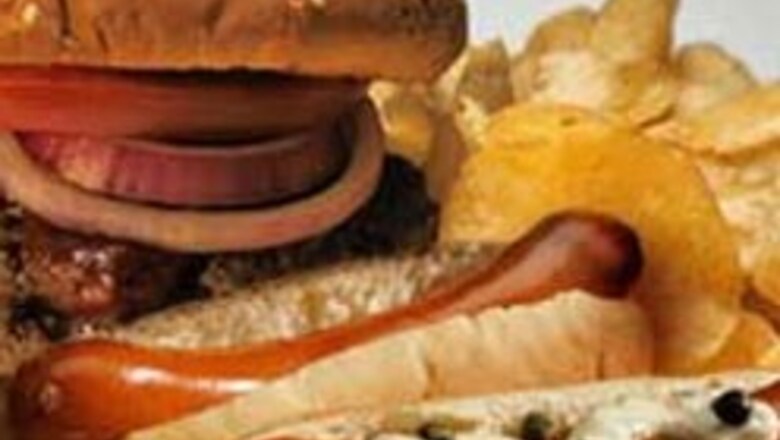
views
New Delhi: For Roshan, it started in high school. He had always been a hearty eater, but increasingly, when life got stressful, he turned to food for comfort.
At first it was relatively harmless, he says, but in college, as his life pressures grew, his habit escalated to a full-fledged eating disorder called binge eating.
"I would maybe eat lunch with friends and eat a normal-size lunch," he says. "And then after lunch, when the people would leave, I would go and get more food and I would eat until I was very full or just couldn't eat any more."
Roshan, who doesn't want his last name used, remembers one of his biggest binges: two pints of ice cream and then "a sleeve of Ritz crackers with peanut butter, Triscuits, some cheese from the refrigerator, maybe some cream cheese straight out of the carton, maybe some mayonnaise right out of the jar."
While many of us overeat but never reach this extreme, doctors are becoming alarmed at the number of people who are becoming binge eaters. In US, Binge eating has now become most common eating disorder, affecting one in 35 women, making it three times as common as anorexia nervosa, according to new research.
Doctors are also starting to understand how easy it can be to go from overeating to binge eating. "There can be a very fine line, and it can be very easy to cross," says psychologist Linda Craighead, author of The Appetite Awareness Handbook.
From overeating to binge eating
Roshan says that in the beginning, he never knew he had a problem. "I just thought I had a big appetite," he says. "I've always loved food." That's a fairly typical beginning for an eating disorder.
"Many individuals really like food, and like to pig out sometimes. They do that and they're not distressed about it," says Craighead, a professor of psychology and psychiatry at Emory University. "But someone with binge-eating disorder, whenever they lose this control, they feel really bad afterwards."
PAGE_BREAK
Why people binge
Experts say food becomes an addiction, like alcohol or drugs. While using ones chosen drug, one feels high. It distracts the person from the other problems in life. "I was binging every day and it was a way that I was coping with the stress of school," says Ketan, an IT professional.
"The person is feeling bad and eating allows them to kind of temporarily tune that out," he says. "I call it the magician's trick: If you create a diversion -- which is the eating -- then you won't have to feel the feelings."
Another cause of binging is compensating for a severe diet, experts say.
"When people are binging, it usually means that the rest of the time they're trying to eat really super healthy and so they get this psychological deprivation," says one health experts.
Overcoming binge eating
One of the first experts tell is to eat every few hours, so that you won't feel deprived and go on a binge. “We really insist that they eat breakfast, that they eat lunch, that they eat a midafternoon snack, and people surprise themselves that when they do that shift in their schedule, they actually feel less pressure to binge," says doctors.
Now 31, Roshan is a teacher and hasn't been on a binge in seven months. He still remembers the days when he felt alone. "I just thought something was wrong with me," she says. "I didn't know there was help, or that this actually existed as a disorder."
|




















Comments
0 comment